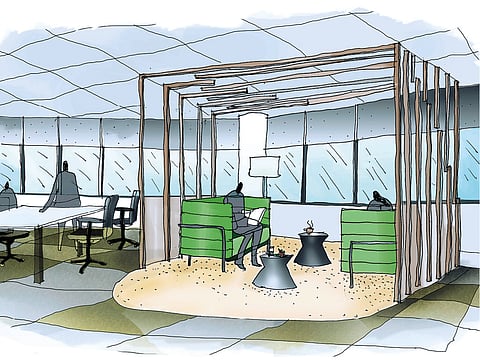Fitting in ‘digital’ workers isn’t difficult
Future of how work gets done requires ever closer human and digital integration

While the full scale of the coronavirus outbreak remains unknown, its effects are already being felt well beyond the realms of healthcare. With production halted across large swathes of China, stock markets fell into freefall last week.
As governments scramble to contain the virus, more and more measures are being introduced to restrict large public gatherings. Sports fixtures, food festivals and industry tradeshows are among the events to be cancelled or postponed as organizers sensibly prioritize prevention over profit.
For most businesses, however, the show must go on. And this has seen many of them introduce their own precautionary measures, such as encouraging staff to work from home. While we all wish this was happening under very different circumstances, it does provide us with an interesting insight into how prepared organizations are for the “Future of Work”.
Remote access
There’s no doubt that remote working will be a central tenet of this future, and technological advancements are making the practice more feasible for a wider range of job roles. But this is just one aspect of the future of work... and potentially the easiest to implement. So, why are so many organizations struggling to support and adjust to demands for a new work experience?
Ditch the repetitive
The forces that are reshaping the way we work cut to the very core of corporate culture, stakeholder roles, and how business is conducted. As such, preparing for this is an inherently complex process.
The work environments constructed during the first 20 years of the 21st century lack the agility required to remain competitive for the next 20 years. Manual, repetitive operations limit scalability and growth, while monolithic, bloated, nonintegrated applications hinder effectiveness and demoralize workers.
Challenges around security and connectivity limit access to corporate resources, resulting in work activities that are bounded by physical structures and specific times of the day.
Reshape corporate hierarchies
Consequently, how work will shape up requires entirely new environments, organizational structures, and metrics for success, and not limited to incremental adjustments. Technologies such as AI, data analytics, robotics, AR/VR, and intelligent process automation will be central to changing the way work is done — and central to changing who – or what – is doing that work.
Indeed, in the new work experience, human workers will operate side by side with digital coworkers, enabling the former to focus on higher-value activities. These changes are happening very rapidly — in fact, many of us are already seeing the growing role of “digital workers” at our own organizations and industries.
Bring them on
With the push to increase productivity, reduce time to market, and make up for the lack of digital talent, organizations will leverage digital workers to enhance the capabilities of their employees.
These organizations stand to reap benefits such as improved customer engagement, faster cycle times, fewer errors, and reduced security and compliance risk. And since human workers can offload repetitive duties and focus on higher-value tasks, the overall employee experience should also improve, presenting further benefits in terms of talent retention and acquisition.
A perfect fit
At the same time, our own experiences as consumers are driving new sets of expectations for the work environment. We are now demanding personalized experiences with almost ubiquitous access to resources anytime and anywhere, with ease and immediacy.
Differing workstyles may be preferred by different constituents of our multigenerational workforce, and all must be accommodated at the same time.
The future of work is about rethinking the way things get done to enhance business agility, worker productivity, and operational efficiency. It represents a fundamental shift in the work model to one that fosters human-machine collaboration and supports an intelligent and dynamic environment unbounded by time or physical space.
And most importantly, it has the potential to enable far greater levels of collaboration and innovation, and thereby drive much greater business value.
- Jyoti Lalchandani is regional Managing Director at IDC.







